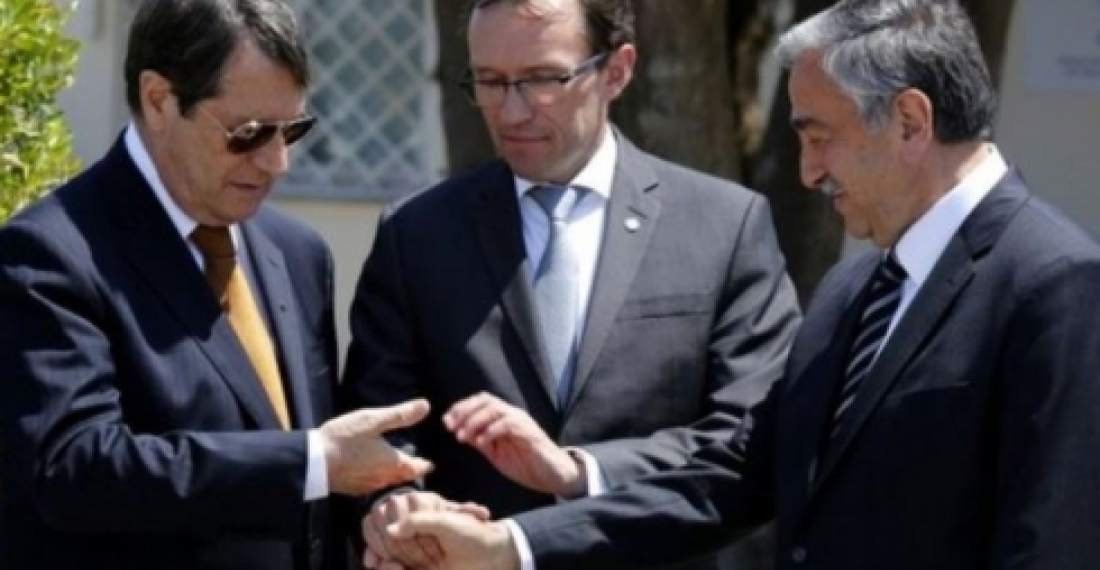Hopes are increasing of a possible breakthrough in the long negotiations to resolve the conflict in Cyprus. The BBC reports that the leaders of the divided Greek and Turkish communities on the island have resumed peace talks amid what the UN mediator described as a "climate of optimism".
The President of the Republic of Cyprus Nicos Anastasiades and Turkish Cypriot leader Mustafa Akinci met in Nicosia's neutral buffer zone. UN envoy Espen Barth Eide said they "shared their vision for a united Cyprus".
Mr Akinci was elected last month as president of the self declared Turkish Republic of Northern Cyprus. The Turkish-controlled north broke away in 1974 after a brief Greek-inspired coup.
Since a Turkish military invasion in 1974 the island has been effectively partitioned, with the northern third inhabited by Turkish Cypriots and the southern two-thirds by Greek Cypriots.
Peace negotiations stalled last October, when the Greek Cypriots walked out in protest at the presence of a Turkish ship prospecting for natural gas off the island's south coast.
The BBC said that correspondents say there are hopes that Mr Akinci, a leftist moderate, can push forward the new round of negotiations.
"The talks took place in a very positive climate and I believe that working in similar fashion, we can hope for progress," Associated Press quoted Mr Anastasiades as saying after Friday's UN-brokered meeting.
In an initial move, Turkish Cypriot authorities agreed to no longer require Greek Cypriots to fill in visa forms at crossing points to northern Cyprus, UN envoy Mr Eide told reporters.
UN peacekeeping forces estimate that 165,000 Greek Cypriots fled or were expelled from the north, and 45,000 Turkish Cypriots from the south, although the parties to the conflict say the figures are higher.
Compensation for those displaced by the conflict is expected to be one of the thorniest issues in the talks.
The self-declared Turkish Republic of Northern Cyprus is recognised only by Turkey.
source: commonspace.eu with BBC News.
photo: Nicos Anastasiades (left) and Mustafa Akinci (right) at talks brokered by the UN on Friday, 15 May 2015







